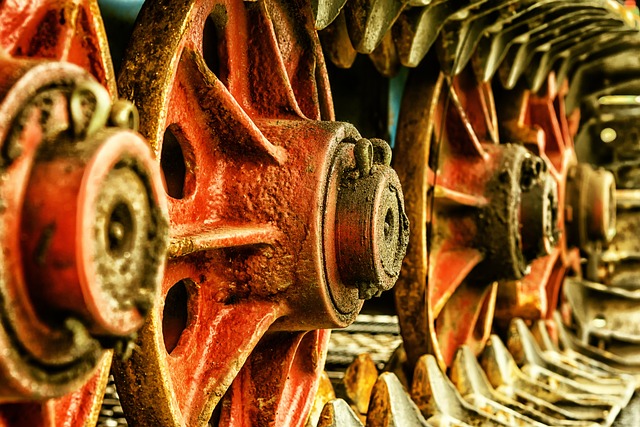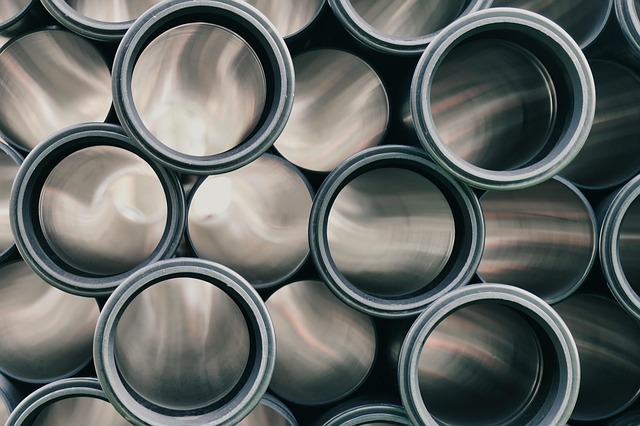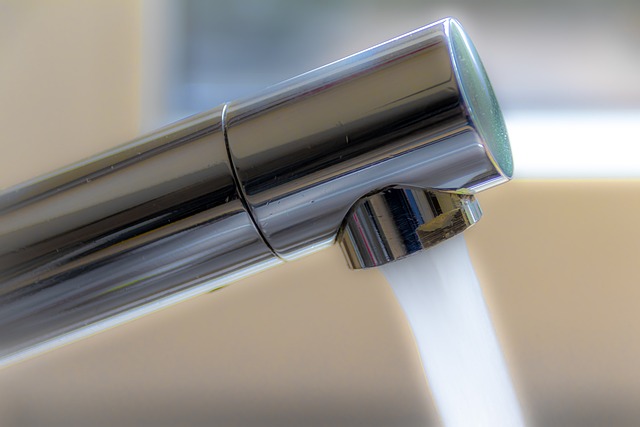Pipe corrosion, a widespread issue across industries, results from an electrochemical process where metal pipes act as conductors, facilitating electron transfer between the metal and corrosive substances in fluid flow. Common causes include exposure to chemicals, hard water with high mineral content, moisture, and temperature fluctuations. Understanding these root causes is crucial for implementing effective prevention strategies tailored to different corrosion types, such as uniform, pitting, intergranular, and stress corrosion cracking.
“Unveiling the Hidden Causes of Pipe Corrosion: A Comprehensive Guide. Pipe corrosion, a silent menace in water systems, poses significant challenges. This article delves into the common causes behind this deterioration, focusing on rust, chemicals, and hard water. We explore the basic mechanics of pipe corrosion, revealing its various types.
Section one dissects the role of corrosive chemicals, including chlorine’s impact and pH levels’ influence. Case studies highlight chemical-induced failures. Subsequently, we examine hard water as a contributing factor, detailing mineral deposits’ effects and offering preventive measures and advanced treatment solutions.”
- Understanding Pipe Corrosion: The Basic Mechanics
- – Definition and impact of pipe corrosion
- – Types of corrosion: Uniform, pitting, intergranular, stress corrosion cracking
Understanding Pipe Corrosion: The Basic Mechanics

Pipe corrosion is a pervasive issue that plagues various industries, from water treatment to oil refining. Understanding its mechanics is crucial in mitigating its effects. At its core, pipe corrosion involves an electrochemical process where metal pipes act as an electrical conductor, facilitating the transfer of electrons between the metal and corrupt substances within the fluid flow. This interaction leads to oxidation, a chemical reaction that weakens the pipe’s structural integrity over time.
The common causes of pipe corrosion include exposure to corrosive chemicals, such as acidic or alkaline substances, and hard water containing elevated levels of minerals like calcium and magnesium. These components can accelerate corrosion by increasing electrical conductivity and providing a medium for galvanic reactions. Additionally, certain environmental factors, including moisture, temperature fluctuations, and the presence of contaminants, further exacerbate pipe corrosion, making it imperative to implement effective prevention strategies to safeguard piping systems.
– Definition and impact of pipe corrosion

Pipe corrosion is a gradual process where metal pipes, particularly those used in plumbing systems, suffer damage due to various factors. It begins with the deterioration of the pipe’s protective coating or lining, leading to exposure and subsequent attack by corrosive substances present in water. Over time, this can result in weakness, cracking, pitting, or complete failure of the pipe, causing leaks and potential environmental hazards.
The common causes of pipe corrosion include rust formation due to moisture and oxygen contact, chemical reactions with water containing aggressive minerals or contaminants, and hard water’s impact on metal surfaces. Hard water, rich in calcium and magnesium, can accelerate corrosion by increasing the conductivity of water, allowing for faster oxidation of metals. Understanding these hidden culprits is crucial for maintaining plumbing systems and ensuring their longevity.
– Types of corrosion: Uniform, pitting, intergranular, stress corrosion cracking

Pipe corrosion is a multifaceted issue, with several types manifesting depending on various factors like water chemistry and environmental conditions. Understanding these different forms is crucial when addressing the common causes of pipe corrosion. For instance, uniform corrosion involves gradual, even deterioration across the entire pipe surface, often seen in cases of hard water with high mineral content. On the other hand, pitting corrosion results in localized attack points, creating small, shallow depressions that can weaken structural integrity over time.
Intergranular corrosion is another significant concern, affecting the boundaries between crystal grains in metal pipes. This type of corrosion can be accelerated by certain chemical compounds present in water, leading to more rapid and extensive damage. Stress corrosion cracking (SCC) is yet a different challenge, where pre-existing stress or strain in the pipe material exacerbates corrosion at specific points under corrosive environments. Recognizing these distinct forms of corrosion is essential for implementing effective prevention strategies tailored to each scenario.
Rust, harmful chemicals, and hard water are the primary hidden culprits behind pipe corrosion, contributing to a range of issues from leaks to structural failures. Understanding the various types of corrosion – uniform, pitting, intergranular, and stress corrosion cracking – is crucial for developing effective prevention strategies. By addressing these common causes through material selection, proper treatment, and regular maintenance, it’s possible to significantly extend the lifespan of piping systems, ensuring their reliable performance in diverse environments.
